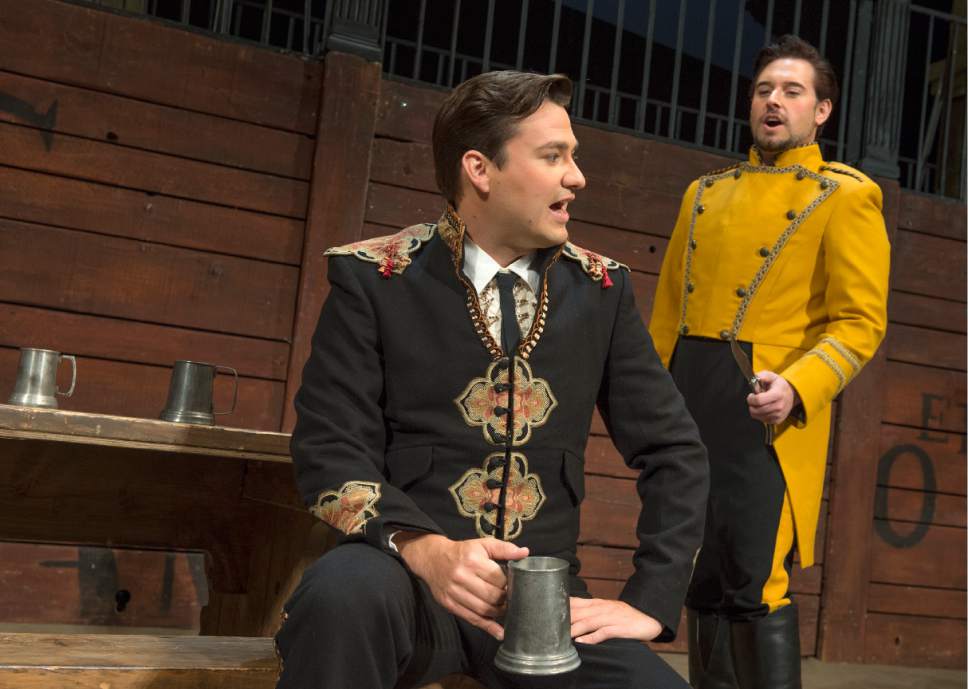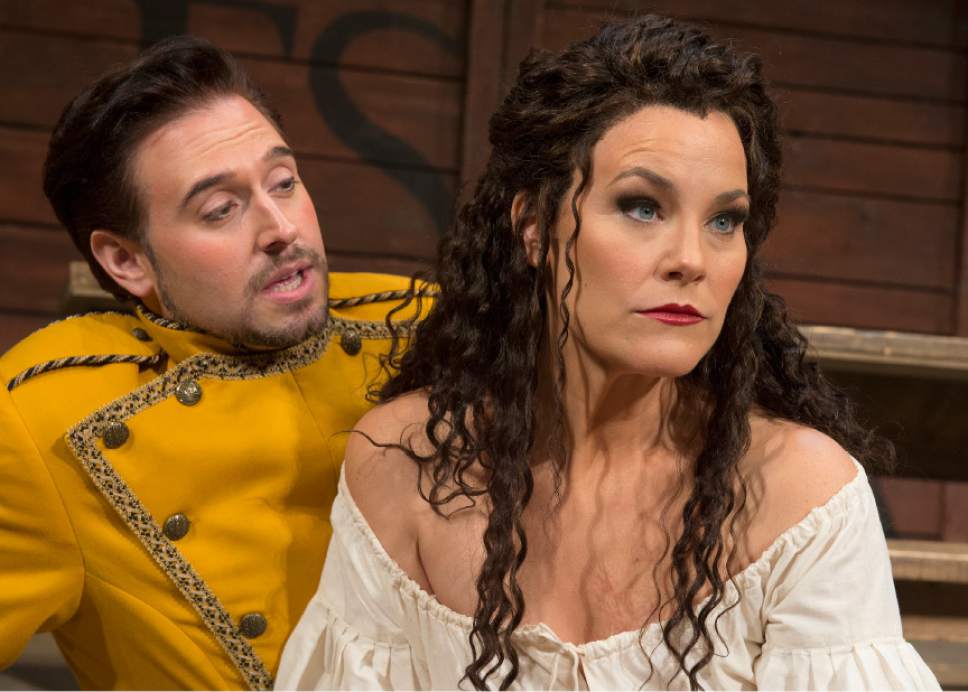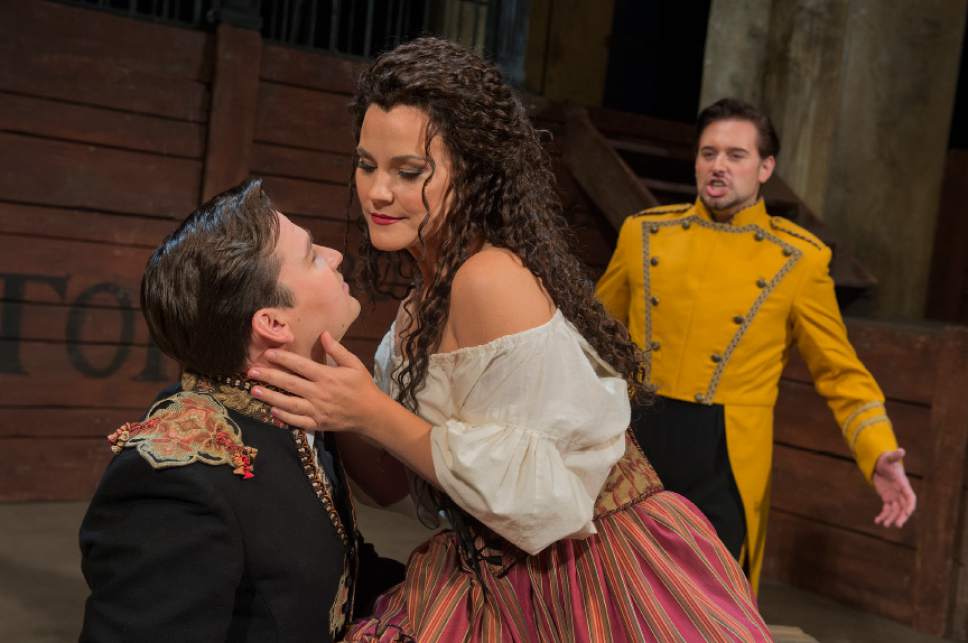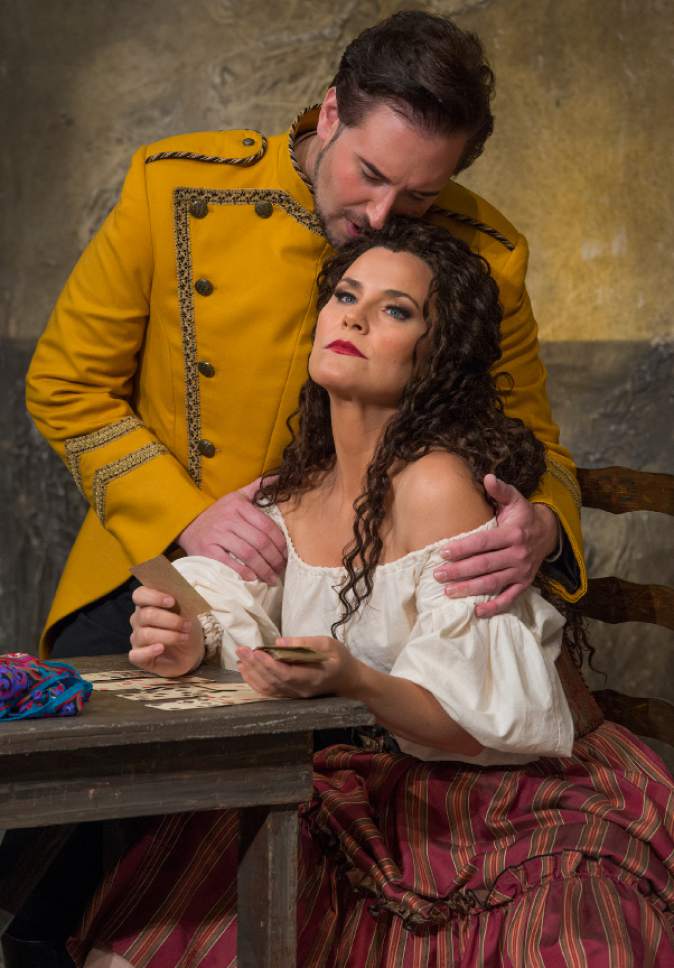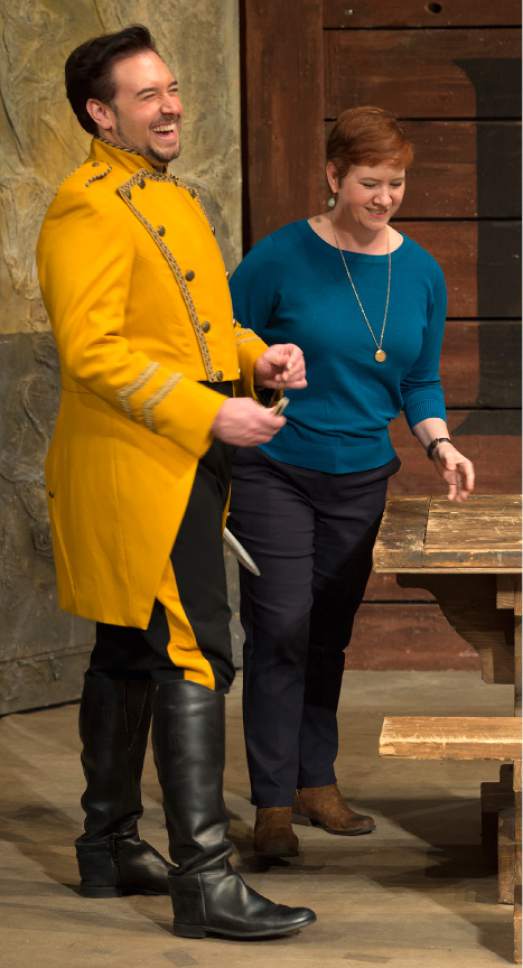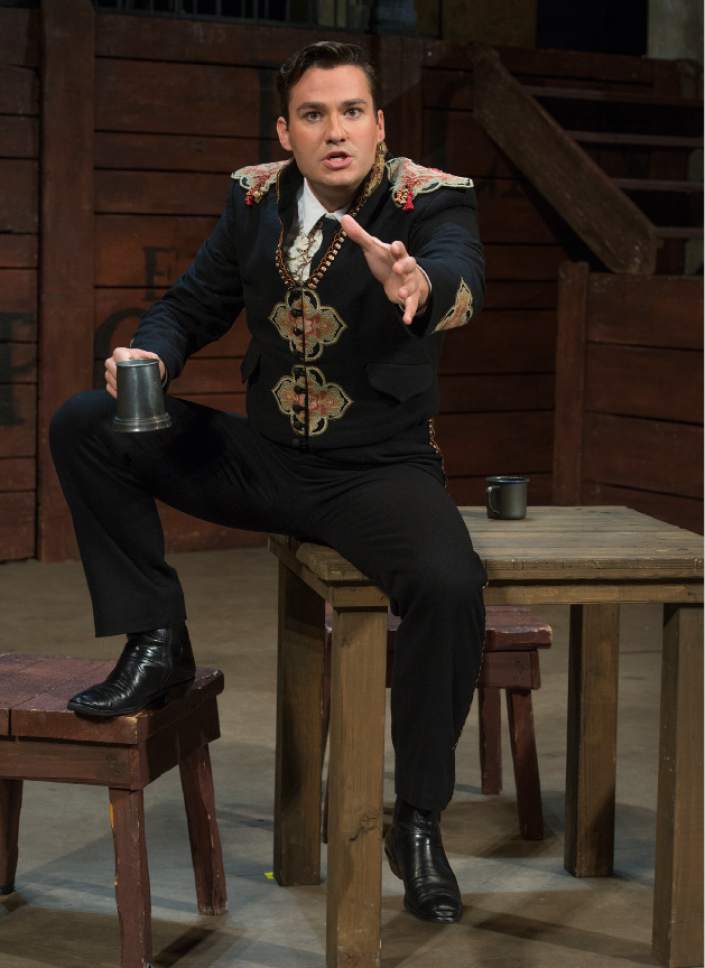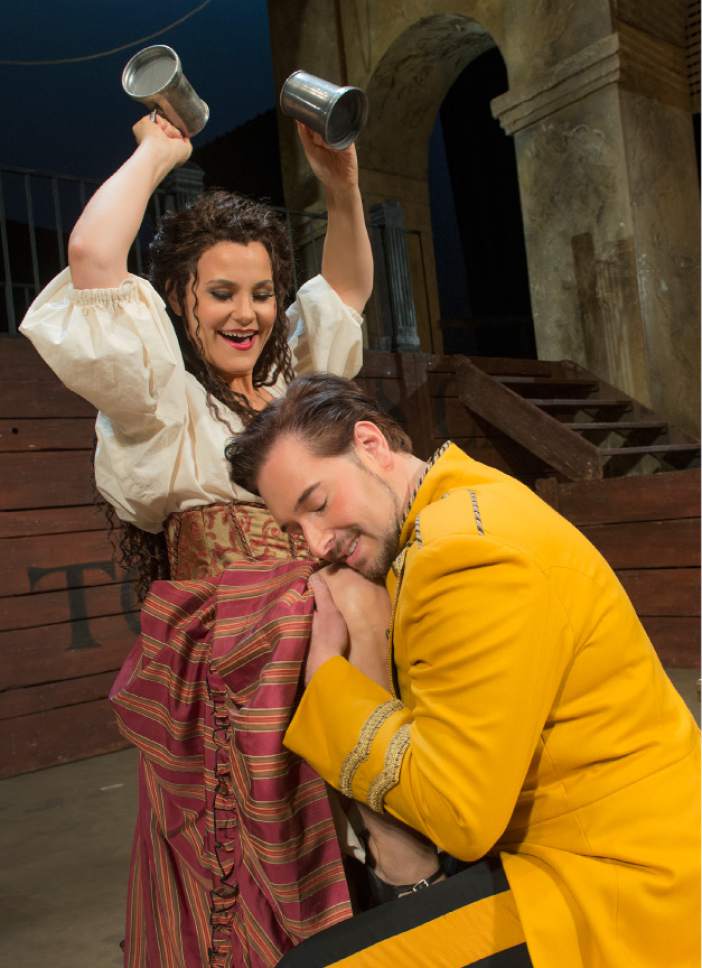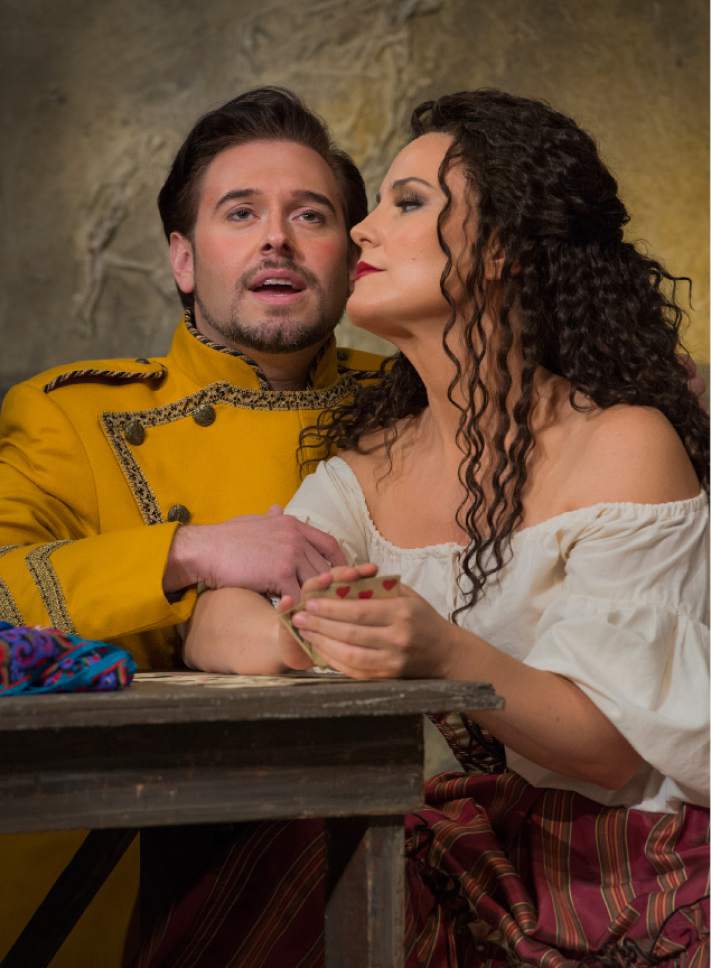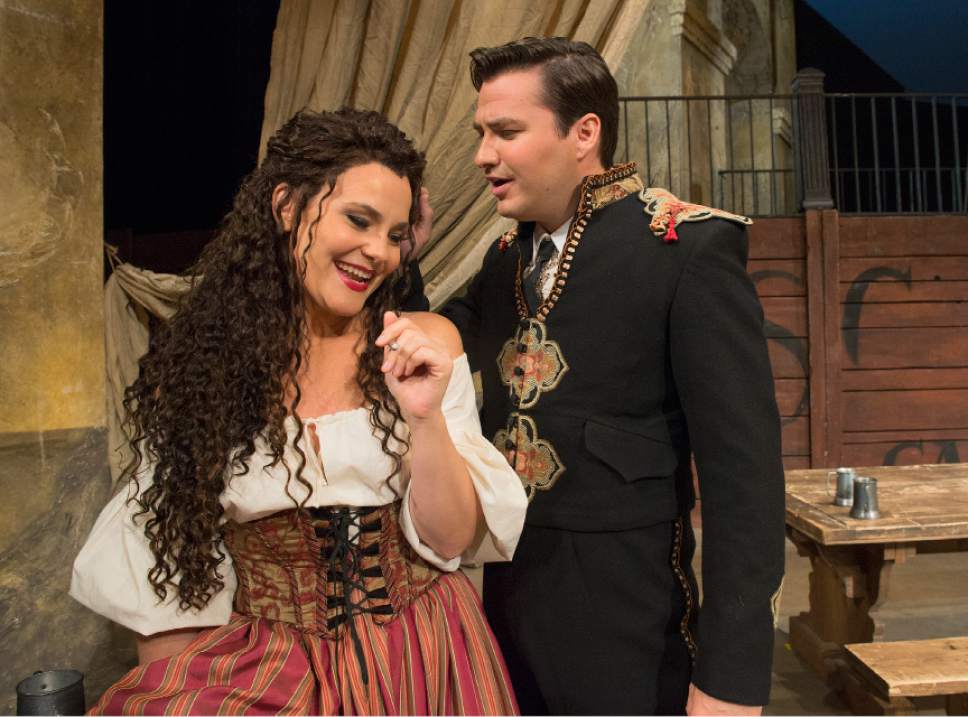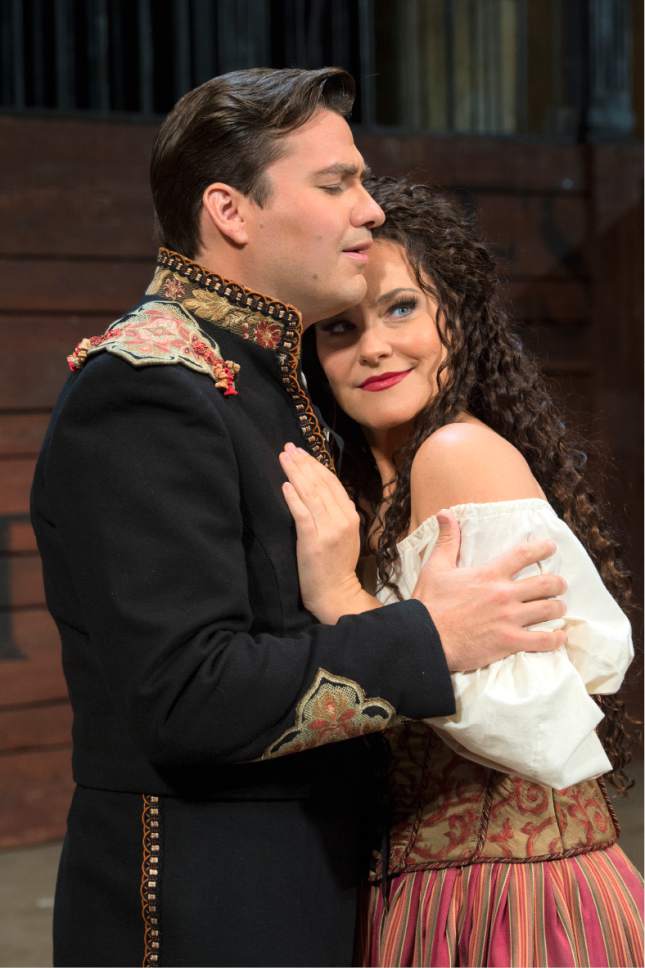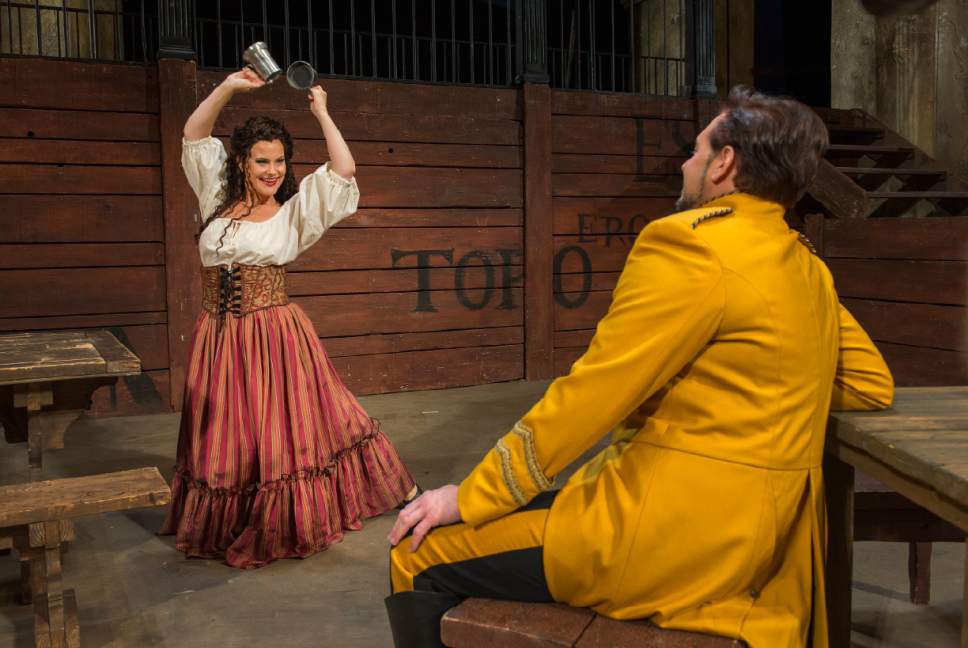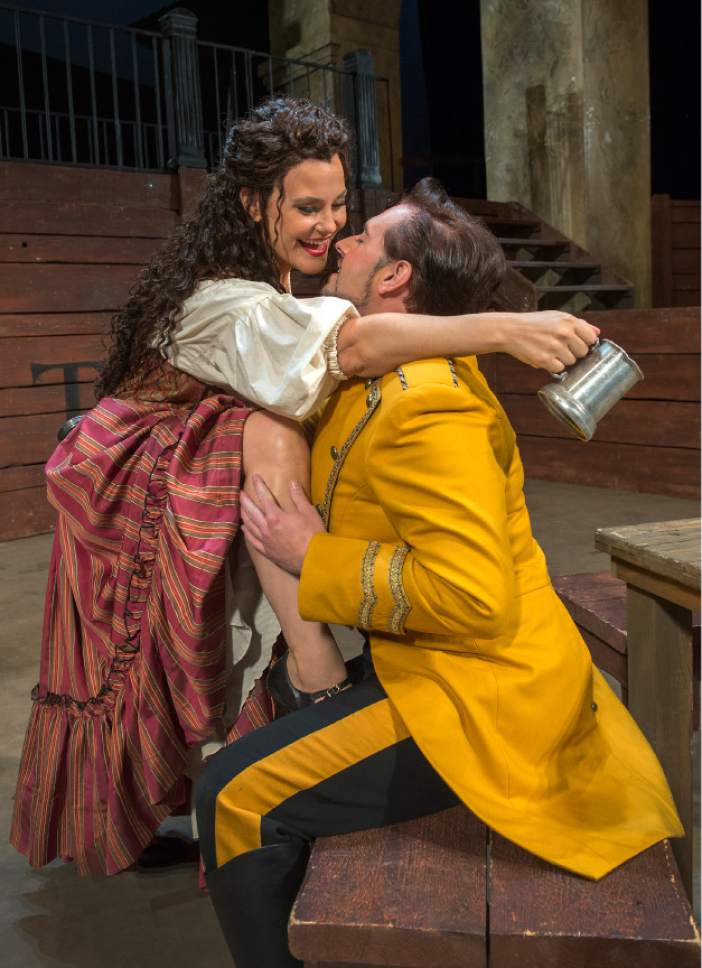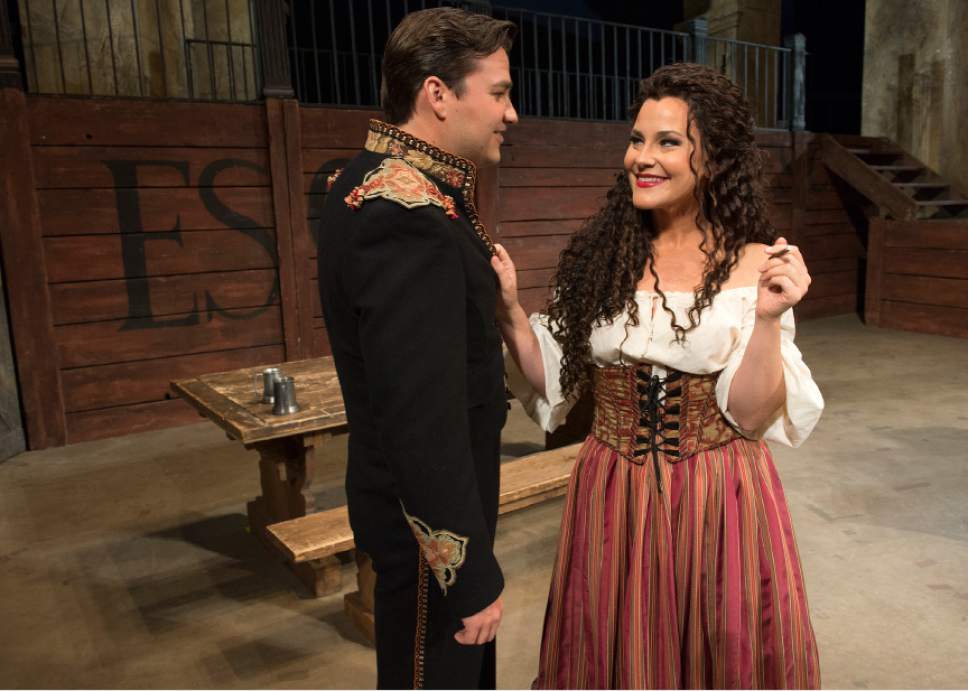This is an archived article that was published on sltrib.com in 2016, and information in the article may be outdated. It is provided only for personal research purposes and may not be reprinted.
Opera is rife with toxic relationships, but the one between Carmen and Don José may be the gold standard.
The fiery Gypsy at the center of Georges Bizet's "Carmen" prizes freedom above all else. José, a Basque enlisted in the Spanish army, craves control. Their tempestuous affair leads José to desert his post, ditch his faithful fiancée and break his mother's heart. Unimpressed by these displays of devotion, Carmen throws him over for the rock-star matador Escamillo — leading to the inevitable confrontation outside the bullring.
Tara Faircloth, stage director of the Utah Opera production opening Saturday, Oct. 8, called the relationship "a perfect storm of awfulness."
"There is something deeply broken in José," she said. "He joins the military and tries to bury himself in an orderly life, but he's looking for healing in all the wrong ways." Unfortunately for him, Carmen is a free spirit who has no use for his rules. In their final duet, a desperate José implores Carmen, "I'll save you and you can save me."
"Carmen really isn't there to save anyone," Faircloth said. "It's so heartbreaking."
"The way she is works perfectly to drive what happens to him," conductor Robert Tweten added.
Carmen doesn't play by anyone else's rules, but that doesn't mean she has none herself. She sticks to her principles no matter the cost. That makes the mercurial Don José a compelling foil for her, said Elise Quagliata, the mezzo-soprano who will portray Carmen for Utah Opera.
Because José's disintegration gives the opera its dramatic arc, it's the mezzo's task to make Carmen come across as a fully realized human being who's more than just the instrument of his destruction. The vocal technique required of her isn't particularly tricky, but the role is a test of stamina. Carmen is nearly always onstage and often must sing while dancing — quite the feat at 4,200 feet. Quagliata, who has trained as a dancer since age 5, said she's been running, cycling and using a treadmill in preparation. She contrasted Carmen with Don José's fiancée, Micaëla — who, as sung by Sarah Tucker in this production, "opens her mouth and small angels fly out."
"I'll set the stage on fire and bring everyone down with me," Quagliata said.
Tenor Dominick Chenes, who plays Don José, said his challenge is to humanize the hot-headed soldier. "Not everybody can relate to violence and volatility," he said. "I'm not a volatile person." Although José reveals his short fuse at the beginning of the opera, the singer must display different vocal qualities as the character's mental state deteriorates. He needs to show finesse and tenderness toward the women in his life, then shift to anger and passion. "We are actors who sing," he said. "Until you understand that, you're just making pretty sounds."
There are a lot of pretty sounds in "Carmen," of course, including several of the most recognizable melodies in all of opera. "It's an amazing score," said Tweten, who praised Bizet's gift for characterization and scene-setting.
"It's the perfect combination of amazing tunes coupled with two crazy outsiders who are so realistic and startling and deeply portrayed," Faircloth said. —
Put a ring on it
Utah Opera opens its season with Georges Bizet's "Carmen." Singing and spoken dialogue are in French, with Supertitles in English.
When • Opens Saturday, Oct. 8, 7:30 p.m.; evening performances continue Oct. 10, 12 and 14, with a 2 p.m. matinee Oct. 16
Where • Capitol Theatre, 50 W. 200 South, Salt Lake City
Running time • 3 hours, including two intermissions
Tickets • $21-$110; various discounts available; utahopera.org
In a nutshell • A soldier's obsession with an indomitable woman doesn't bode well for either of them.
Learn more • Pre-performance lectures by Utah Opera principal coach Carol Anderson an hour before curtain and post-performance Q&A led by artistic director Christopher McBeth, all in the Capitol Room on the west side of the theater; background reading at utahopera.org/onlinelearning


